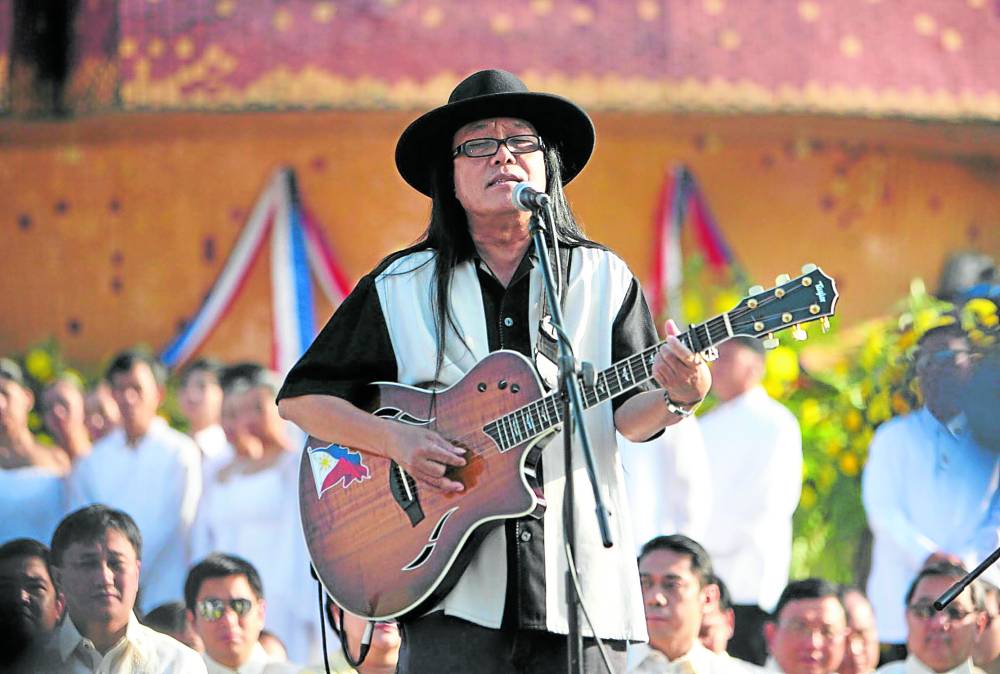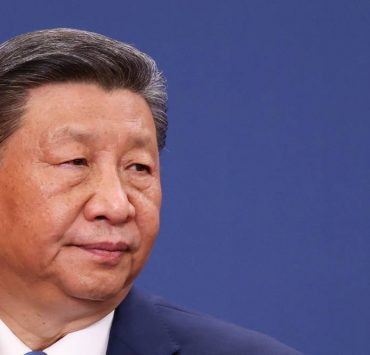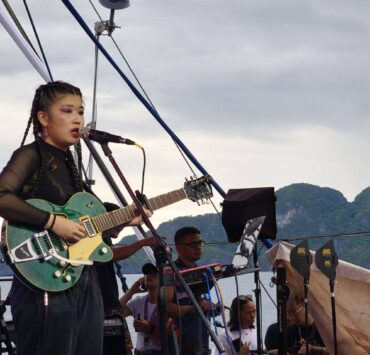Folk music legend Freddie Aguilar; 72

Freddie Aguilar, the Filipino folk music legend whose haunting ballad “Anak” touched millions of listeners worldwide and whose stirring anthems served as a soundtrack to both martial law resistance and, later, to populist politics, died yesterday, May 27, at the Philippine Heart Center. He was 72.
News of his death was confirmed by his first legal wife, Josephine Queipo, and by George Briones, general counsel for the Partido Federal ng Pilipinas, where Aguilar once served as a national executive vice president. No official cause of death was available at the time of writing.
The singer was born Ferdinand Pascual Aguilar on Feb. 5, 1953, in Santo Tomas, Isabela. When he was in third grade in school, Aguilar and his family left their comfortable home in the province and moved to Manila after his father lost all his savings battling an illness.
Unaware of the real reason behind the move, Aguilar said he grew resentful toward his father. He defied his father’s wish for him to become a lawyer and pursued music instead.
Enduring ‘Anak’
By the age of 23, Aguilar had moved on his own to Olongapo City. His bitterness toward his father soon mellowed, and his ruminations over his actions bore “Anak”—the song that would become the anchor of his record-breaking musical legacy.
Written as a ballad of apology and humble expression of remorse, “Anak” was recorded in 1977, and the following year, became a finalist at the first Metro Manila Popular Music Festival.
While “Anak” failed to bag any award (National Artist for Music Ryan Cayabyab’s “Kay Ganda ng Ating Musika,” interpreted by the late Hajji Alejandro, won the top prize), it would become one of the most important and enduring Filipino songs ever written.
It sold 100,00 copies a week after its release, and reached double platinum status in the next few weeks. With themes deeply rooted in family values, “Anak” captivated listeners beyond Philippine shores, selling about 33 million copies worldwide and penetrating various international charts.
The song brought Aguilar from modest folk clubs and bars in Manila to television shows in Hong Kong, Japan, and the Netherlands. (A video of his 1980 performance in the Dutch music program “TopPop” is available on YouTube.) Proving that good music can break language barriers, “Anak” has been covered more than 50 times and translated into at least 26 other languages.
Protest anthem
But more than commercial success, Aguilar’s music also became a galvanizing vehicle for protest during the Marcos dictatorship. His rendition of the patriotic hymn “Bayan Ko,” originally written by the Filipino revolutionary general Jose Alejandrino, became an unofficial anthem of the opposition movement—the impassioned lyrics echoing in marches and vigils leading to the 1986 Edsa People Power Revolution.
In one rally at Liwasang Bonifacio, surrounded by a crowd with clenched fists and joined by opposition figures like former President Cory Aquino, former Sen. Lorenzo Tañada, and other anti-Marcos activists, Aguilar played his acoustic guitar and sang “Bayan Ko.”
Through his other politically charged songs like, “Luzviminda,” “Katarungan,” and “Ipaglaban mo,” Aguilar called for solidarity and cultural pride, and denounced corruption and injustice.
Populist pivot
However, later in life, Aguilar would align himself with the populist former President Rodrigo Duterte, his songs also serving as a soundtrack of the Duterte political movement.
At Duterte’s inauguration on June 30, 2016, Aguilar regaled the crowd with “Para sa Tunay na Pagbabago,” a version of his own hit “Ipaglalaban Ko,” whose lyrics he reworked to highlight issues consistent with the then President’s campaign—corruption, crime, and illegal drugs.
That same year, he advocated for the creation of a Department of Culture and the Arts, aiming to ignite a “cultural revolution” in the country. In 2019, Aguilar also ran for a seat in the Senate with the endorsement of Duterte, but lost.
Very public life
Outside music and his politics, Aguilar led a very public life—one that courted controversies every so often. In 2013, Aguilar, then 60, converted to Islam so he could marry his then 16-year-old girlfriend, Jovie Albao. His relationship with a minor drew flak from different concerned sectors.
On Facebook, former boxer and Sen. Manny Pacquiao—whose recent senatorial bid Aguilar staunchly supported—said the singer’s contribution to Philippine music and culture “will never be forgotten.”
“His song ‘Anak’ touched my heart. It spoke to millions of people around the world … His music went beyond generations. It made us proud to be Filipino. His voice carried the soul of our nation,” Pacquiao said.





















